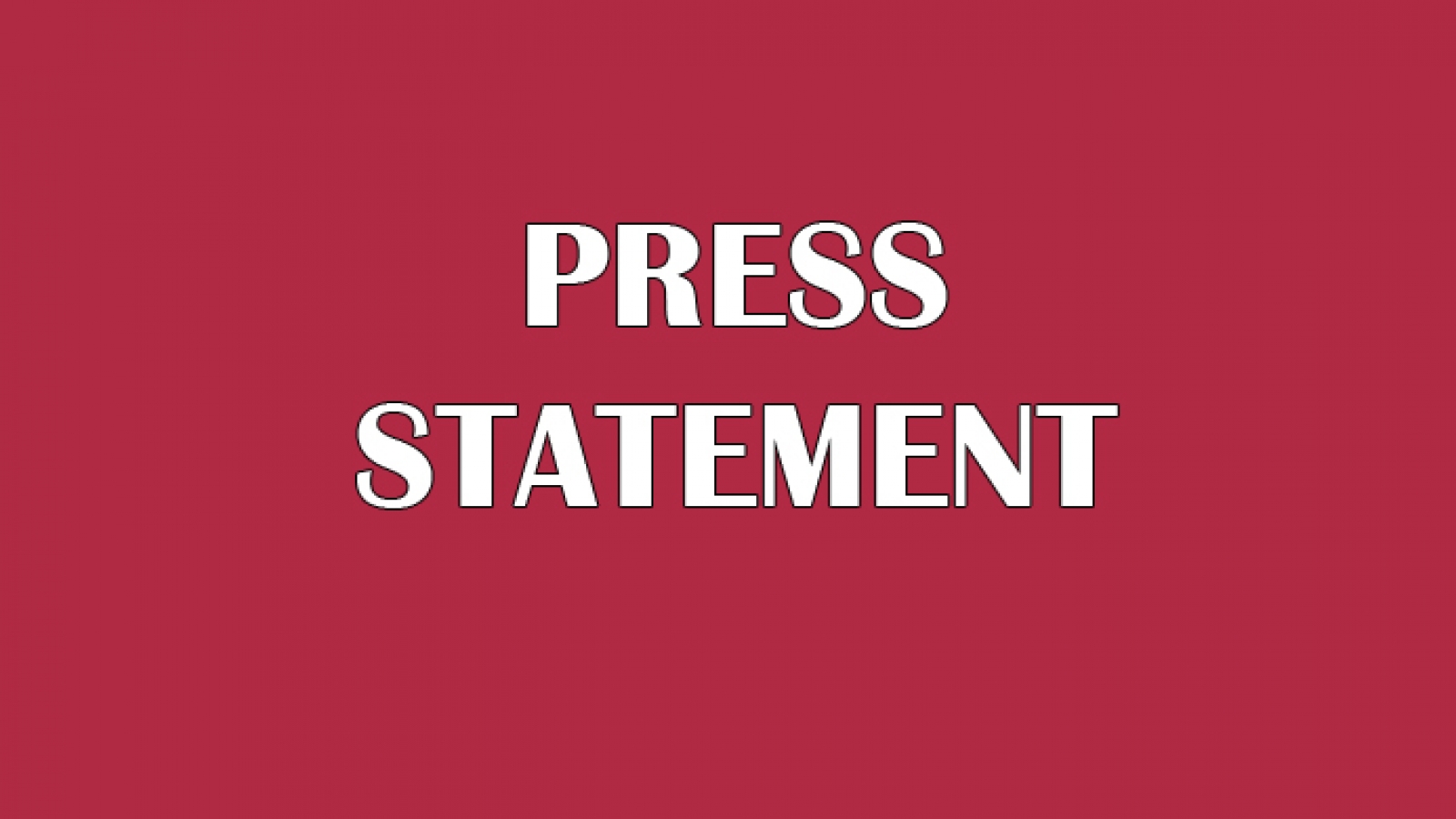KUALA LUMPUR (5 DECEMBER 2019) – The Human Rights Commission of Malaysia (SUHAKAM) extends its appreciation to the Government for debating the 2018 SUHAKAM Annual Report in the third sitting of Parliament in 2019 for the first time. SUHAKAM has been calling for the debate of its annual report since the Commission’s formation in 1999.
Debating the 2018 SUHAKAM Annual Report signals the Government’s commitment to the improvement of human rights in the country, which also fulfils part of Promise 26 of the Pakatan Harapan Manifesto to “make our human rights record respected by the world”. It is also in line with the recommendation made by the Parliament Select Committee on Human Rights and Gender Equality in March 2019.
The 2018 SUHAKAM Annual Report not only brings attention to challenges in the various areas of human rights, but also underlines solutions and possible steps that can be taken to remedy these problems, in addition to work done by SUHAKAM in line with its functions and mandate under the Human Rights Commission of Malaysia Act 1999.
Key areas highlighted by the 2018 SUHAKAM Annual Report include (not in order of importance):-
- Human Rights Education
- Children’s Rights (including Alternatives to Detention)
- Orang Asal / Asli
- Persons With Disabilities (PWDs)
- Death in Custody & Health in Prisons
- Public Inquiry into Enforced Disappearances of Individuals
- National Human Rights Action Plan (NHRAP)
- Legal Reforms (including amendments to the Human Rights Commission of Malaysia Act 1999)
SUHAKAM also wishes to extend its appreciation to the 13 Members of Parliament who participated in a lively debate which brought into focus such topics as citizenship rights of children, protections for children, the rights of refugees and asylum seekers, the land rights of the Orang Asli, the importance of strengthening SUHAKAM’s independence to enable it to fulfil its mandate, and the importance of making human rights a recurring topic in Parliament,among others.
SUHAKAM works closely with its partners in the Government, Non-Government Organisations (NGOs) and Civil Society Organisations (CSOs) to realise human rights work in the country. SUHAKAM looks forward to closer collaboration with the Government and for future yearly debates on the Commission’s annual reports.
APPENDIX
Human Rights Education
SUHAKAM has succeeded in expanding its Best Practices in Human Rights (ATHAM) Programme to 468 schools throughout Malaysia after introducing it in 2009 with the support of the Ministry of Education. SUHAKAM has also created educational human rights modules for post-UPSR and post-PT3 students, with initial implementation in ATHAM schools. SUHAKAM also organised 7 Youth For Rights camps involving 1,535 participants from
various local universities and youth groups.
Children’s Rights
SUHAKAM advocates for the total abolition of child marriage and is encouraged by the efforts of various State Governments to raise the minimum maririage age to 18, which will have positive impacts on education, health and child poverty. The Ministry of Women, Family and
Community Development also took steps to establish a Children’s Commission in 2018. In 2019, the Office of the Children’s Commissioner was created under SUHAKAM and a Children’s Commissioner was appointed.
SUHAKAM also recommends that all tahfiz schools should be registered with the Ministry of Education and that Alternatives to Detention (ATD) are considered for children.
Orang Asal / Asli
The violation of Native Customary Rights (NCR) land continue to be the main complaint received by SUHAKAM pertaining to the Orang Asal / Asli, mostly from the states of Kelantan, Perak, Pahang and Johor in the case of the latter. SUHAKAM advocates for the implementation of recommendations made in the 2013 Report of the National Inquiry of Land Rights of Indigenous People without delay.
Persons With Disabilities (PWDs)
SUHAKAM is concerned by the challenges experienced by PWDs, particularly in terms of accessibility in economic, social, cultural, religious, civil and political areas. SUHAKAM has organised various programmes with PWD communities to engage them on substantive issues related to their needs and rights, and will continue to do so.
Death in Custody & Health in Prisons
SUHAKAM, the Royal Malaysian Police and the Ministry of Health are in the process of establishing a medical team known as the Custodial Medical Unit (CMU) to address health issues among detainees and to record injuries or other humans rights violations experienced by detainees while in custody. These units will initially be established in five centralised lock-ups
in Shah Alam (Selangor), Jinjang (KL), Bayan Baru (Pulau Pinang), Indera Mahkota (Pahang) and Kepayan (Sabah).
SUHAKAM also advocates for the ratification of the United Nations Convention Against Torture (UN CAT) for the elimination of torture everywhere in Malaysia, with special attention to detention facilities where violence and abuse of detainees have led to deaths.
Public Inquiry into Enforced Disappearances of Individuals
SUHAKAM received a complaint from a group of CSOs and family members of of Pastor Raymond Koh, social activist Amri Che Mat, Pastor Joshua Hilmy and Ruth Sitepu in April. The Commission decided to conduct a public inquiry (PI) and began hearing testimony in October 2017. The inquiry into Amri Che Mat was concluded on 31 October and Pastor Raymond Koh on 8 December 2018. The PI found that enforced disappearance by state actors, namely the Special Branch of the Royal Malaysian Police, had occurred in both cases.
National Human Rights Action Plan (NHRAP)
From 2012 to 2018, the Government has studied and developed a National Human Rights Action Plan (NHRAP) which was launched on 1 March 2018. The NHRAP contains 294 action plans and is an important first step in articulating a more coherent and holistic human rights policy in the country. The NHRAP is supported by SUHAKAM and the Commission hopes
that the NHRAP will be implemented without delay.
Legal Reforms
SUHAKAM has recommended amendments to the Human Rights Commission of Malaysia Act 1999 related to the appointments of commissioners, the composition of the commission, the length of terms of commissioners, authority to visit detention centres, authority to perform mediations, authority to review bills before they are tabled and debated in Parliament, the source of funding, SUHAKAM to be present as amicus curiae in court cases related to human rights, the expansion of certain powers under the authority to conduct inquiries and the establishment of a Permanent Parliament Select Committee on Human Rights, among others, for the purpose of strengthening SUHAKAM’s capabilities as a National Human Rights Institution (NHRI).
SUHAKAM also recommends amendments to the Anti-Trafficking in Persons and Anti-Smuggling of Migrants (ATIPSOM) Act 2007 to introduce provisions related to seizure of assets, new rules to identify victims, introduction of slavery and human trafficking statements as proof of transparency in the supply chain of an organisation, to eliminate caning as a punishment and to introduce mandatory reporting of companies in order to further prevent the proliferation of modern slavery.
SUHAKAM has been contributing to the development of bills related to the elimination of discrimination against women and sexual harassment. The Commission proposed the creation of a gender equality law in its CEDAW Committee Report in 2017 and 2018 Annual Report.




